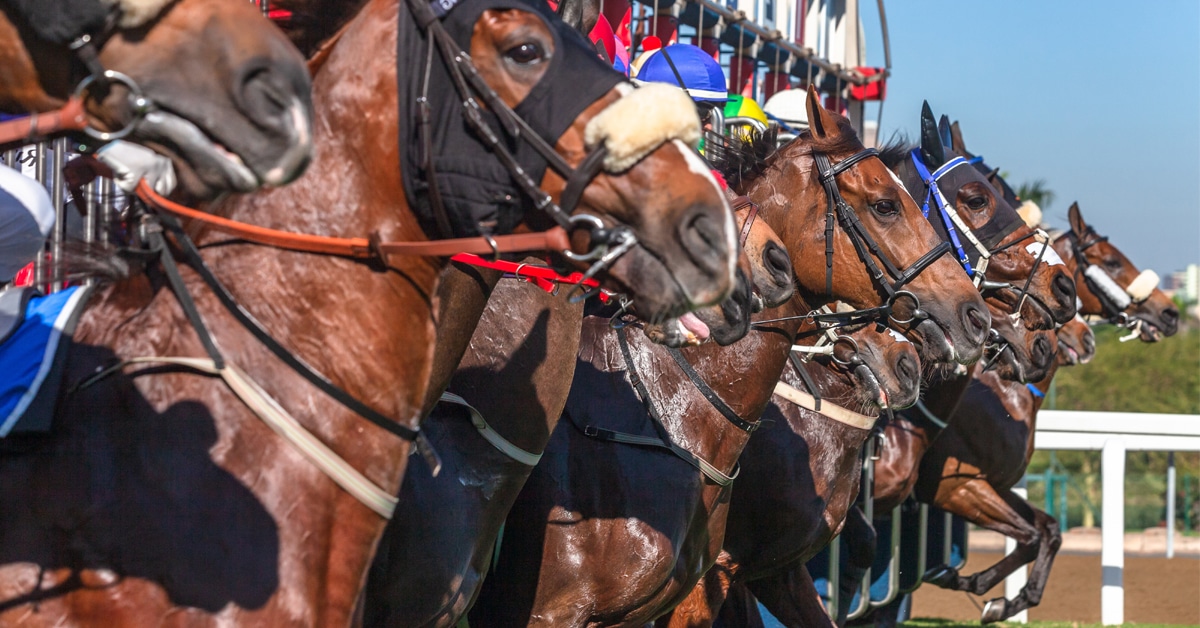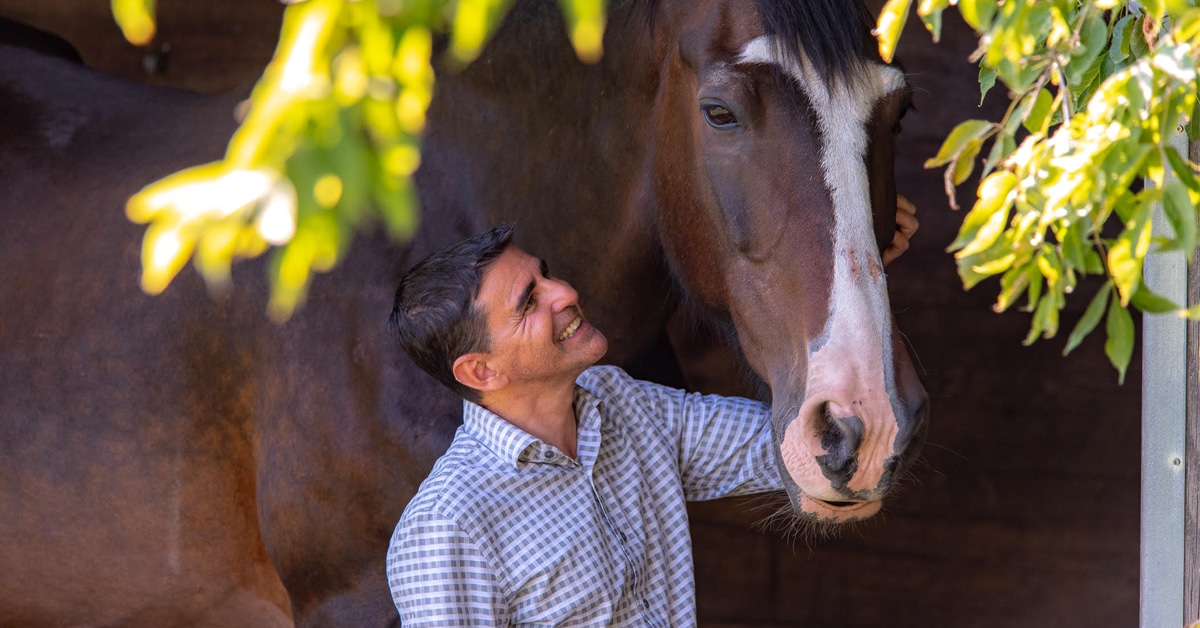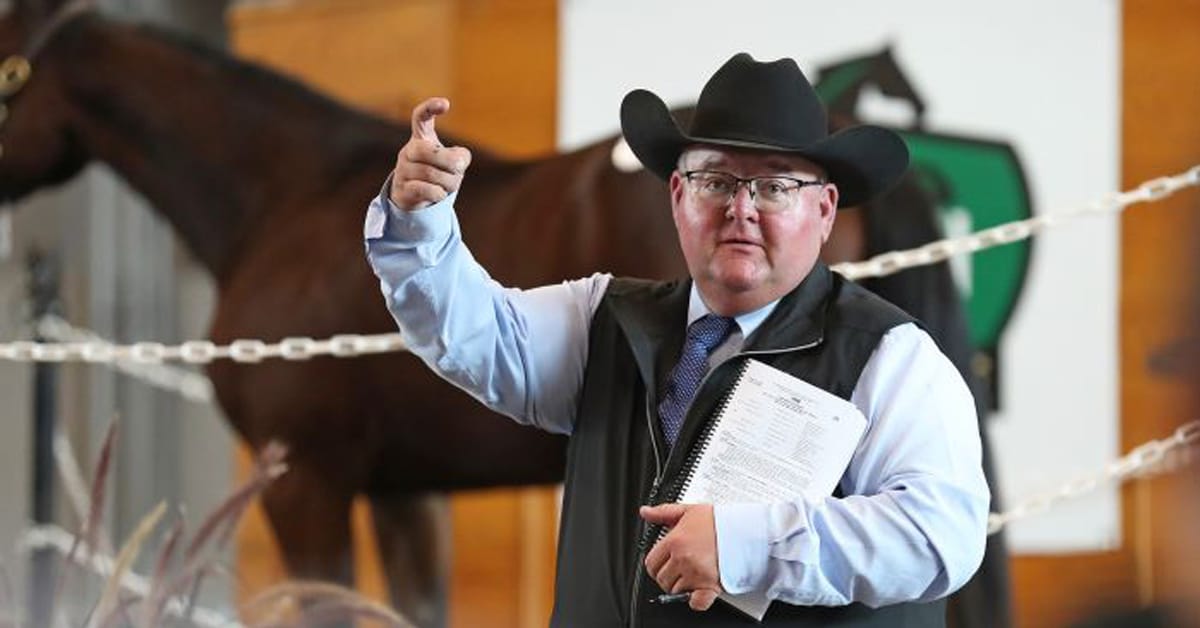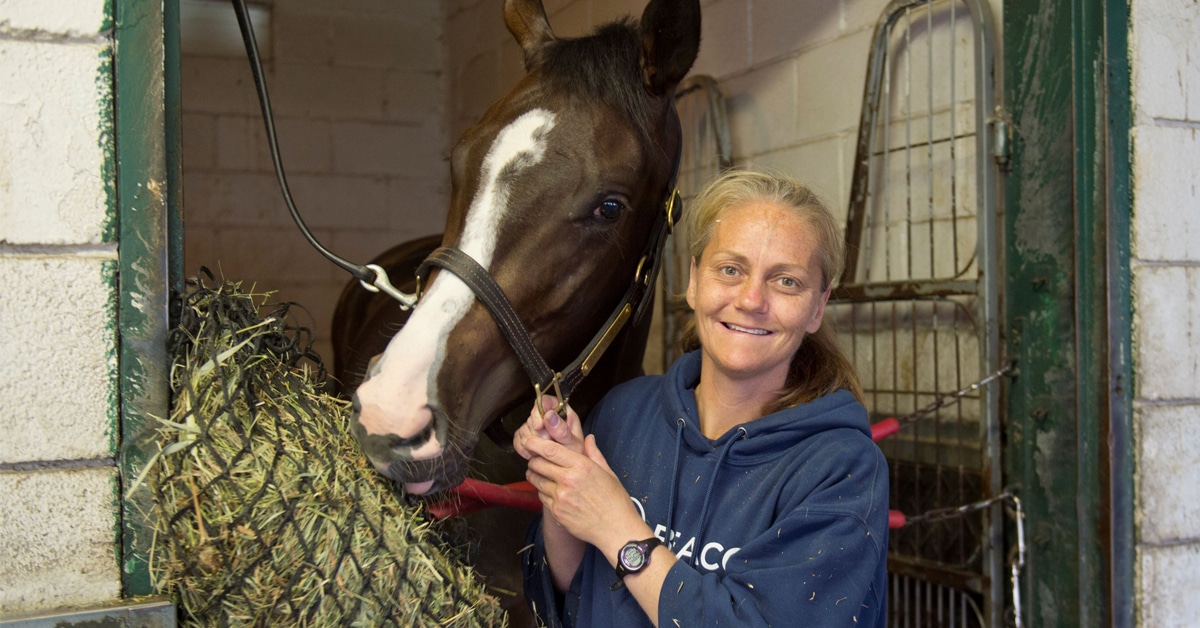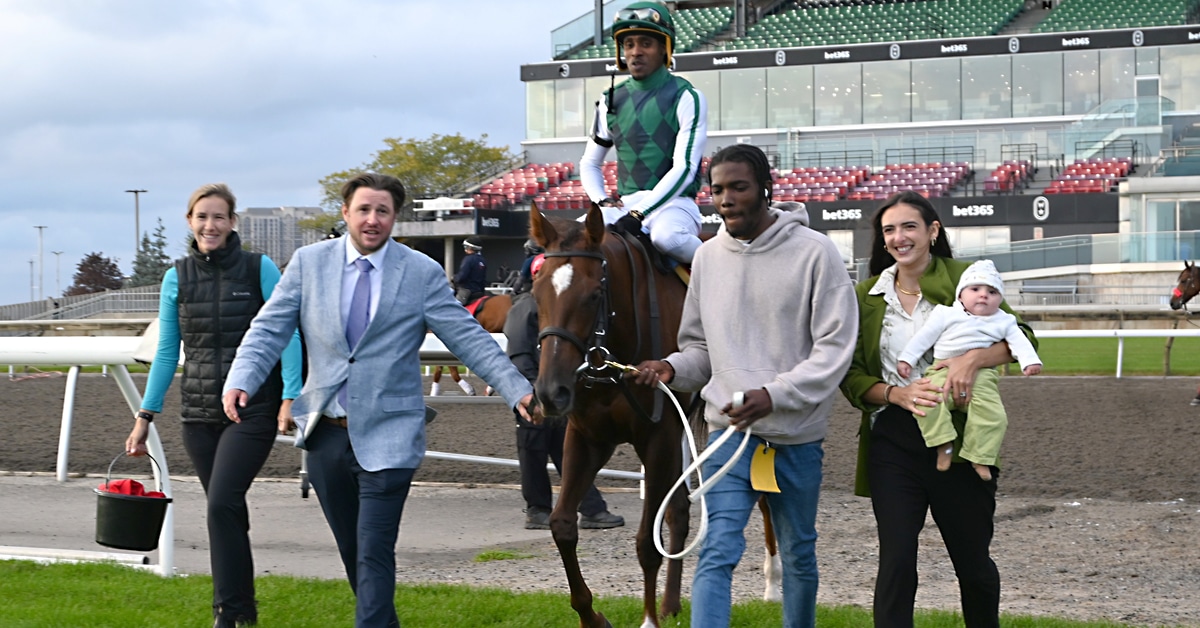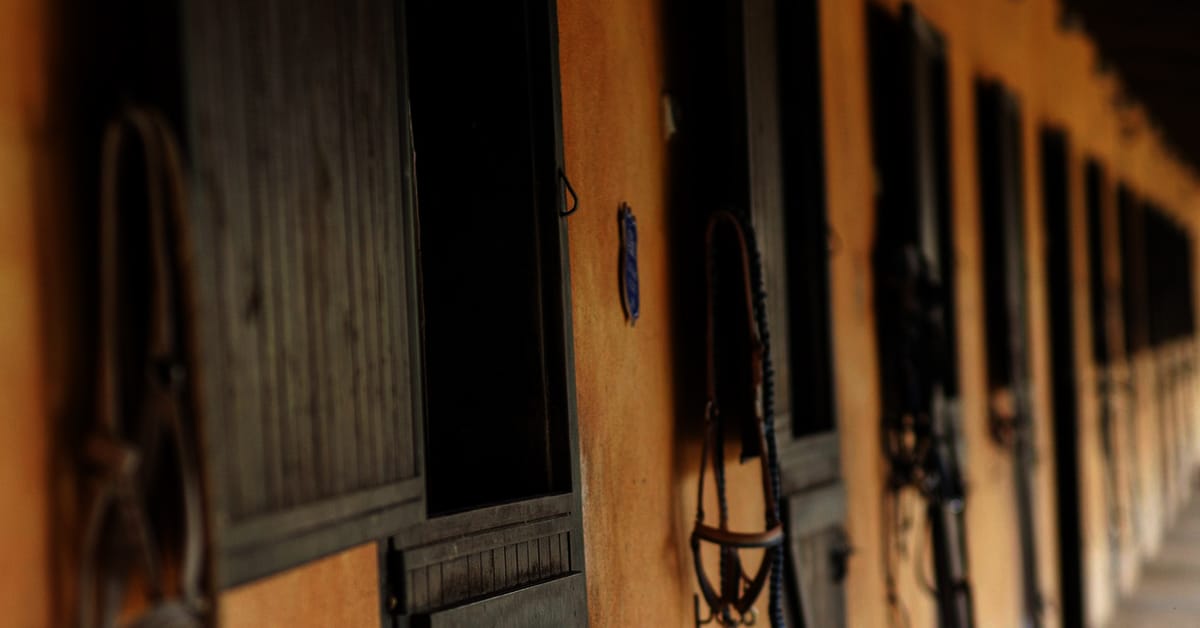2017 marks the 250th year of horse racing in Canada, but despite its longevity, the call for innovation is longstanding in a sport that often feels its customer base is aging and contracting.
In August, to remedy this concern, Woodbine Entertainment Group (WEG), announced a partnership with iBoost and Ryerson University’s Office of the Vice President, Research and Innovation that challenged Canadian entrepreneurs to create and adapt technology to help take horse racing into the future.
The program, named Horse Racing 3.0: Changing the Game (HR3), sought out innovative solutions to drive growth and revenue within the industry with a purse of $21,000, including the winner’s share of $12,000 to the winning team along with an eight-month enrollment in Ryerson’s iBoost program.
“The development of new technologies that advance the Canadian economy is an exciting part of our mandate at Ryerson,” said Usha George, Ryerson’s interim Vice-President, Research and Innovation. “When we pair an established business with a start-up, it creates a synergy that allows both sides to grow and thrive.”
WEG has launched a number of recent innovations including the installation of a new Tapeta surface and an attention-getting foray into clockwise turf racing, but HR3 was concepted specifically to speak to the sought after, and often elusive, millennial customer group.
“At Woodbine, we are continuously looking for ways to modernize our industry to ensure a sustainable future for horse racing in Ontario and gaming is a key piece of the equation,” said Jim Lawson, CEO of WEG. “Our plan in leading the industry is to develop ways to reach and engage a younger demographic.”
A call for prospective innovators landed 16 successful applicants to take part in a “Design Jam” (designers and people in related fields come together to work on a design challenge issued by the organizers or a sponsoring company) that included an opportunity to collaborate with a number of WEG staff and mentors to flesh out their initial ideas while being provided with access to all manner of data from WEG.
From a three-month period to then refine their ideas into a Proof of Concept, a period of study that included mentor workshops led by Rami Posner, WEG’s Director of Innovation, five teams emerged.
Following are the five projects that made it to the HR3 finale:
1. BetShare
A platform (similar to YouTube) designed to connect everyday bettors with the video channels belonging to experienced and successful bettors. Everyday users can monitor the statistics (strike rate, return on investment, hot streak) of other bettors and make an informed decision about who to trust.
The ‘Streamers’ who offer up their channel for subscription benefit by monetizing from the ad revenue they generate and commissions on successful wagers they’ve facilitated.
2. Eye-LIVE
EYE-LIVE Media is a sports media company that produces, gathers and delivers athlete-generated digital media content created from athlete’s point-of-view (POV). They develop athletic headgear that is outfitted with micro-cameras, and other media equipment, which will capture 180° and 360° spherical Virtual Reality (VR) video. The VR view is augmented with visualized data from body and equipment sensors that is referred to as the, “Body Area Network” (BAN). The BAN monitors and delivers data such as biometrics, speed, acceleration, GPS positioning and more.
The combination of VR and Data produces a fully immersive, “Augmented Reality” (AR) POV perspective streamed & recorded directly from the athlete to viewers using TVs and mobile devices such as tablets, smart phones and computers or using VR headsets. Broadcasters are able to convert the VR, for TV, to showcase the athlete’s POV and visualized data for replays during live broadcasts.
3. Horseplay
Horseplay is an app that allows users to place bets on disguised historical races and compete in a virtual horse racing community for credits, recognition and rewards.
Targeted primarily at millennials, Horseplay can be played anytime anywhere with or without internet connectivity featuring a highly visual, engaging and simplified player interface. Players can socially engage with friends, share, and chat to increase knowledge and competitiveness. Targeted offers are sent to encourage joining HPIBet.com as well as visiting Woodbine or its stable of Champions off-track betting locations. Horseplay provides valuable player and behavior analytics to help shape the sport in the future.
4. Project Pegasus
Project Pegasus is a standalone mobile application with a ‘Virtual Coach’ that can be easily incorporated into other wagering applications promoting player education and wagering process simplification. With a boost to wager success rate, it improves overall user experience.
5. HRX
The Horse Racing Exchange (“HRX”) is a mobile and web-based platform that connects horse sellers with horse buyers, allowing the average Joe Sportsfan to own a piece of the action for minimal investment.
On January 17, the five finalists presented their innovations to a team of judges that included Sean Pinsonneault, EVP Strategy and Wagering Woodbine Entertainment Group; Tom Via, Senior Vice President Operations Woodbine Entertainment Group; John MacRitchie, Senior Director Business Development and Strategic Planning Ryerson University; Nick Eaves, Chief Venues & Operations Officer at Maple Leaf Sports & Entertainment; Christine Magee, Chair & Co-founder of Sleep Country Canada; Jamie Rosenblatt, Associate Golden Ventures; and Jayson Horner, President and Chief Executive Officer of CanDeal.
Each team presented to the panel with the unique EYE-LIVE demonstration, which included 360° spherical Virtual Reality (VR) video of jockey Emma-Jayne Wilson in action, drawing an audible response.
However, it was the easy-to-use approach of BetShare that captured the hearts of the judges and winning the competition.
“This was a tough decision. All the teams presented smart concepts. Ultimately, BetShare best solved our challenge to engage new fans and generate additional revenue streams,” explained Pinsonneault. “Their approach to simplify betting by using the pros to help novices and others get more confident in their wagering by winning more is a huge opportunity for us to engage a younger demographic. We see a lot of potential here.”
In addition to the $12,000 cash prize and eight months of support in Ryerson’s iBoost startup incubation zone, BetShare team members will work with WEG to determine the potential for a pilot project.
The BetShare team, which includes Pedro Pessoa, Salah Rawdat, Andrew Chui, Esteban Cardenas and Nehal Rao, arrived at the finale from a strong showing at the Design Jam. They made great strides in the aftermath of Design Jam thanks to great assistance from iBoost.
“They encouraged us to pivot into a greater idea to do something new and better, and we ended up coming up with an idea that we feel strongly about,” said Salah Rawdat on behalf of the BetShare team.
Taking the project from a dream to a reality is the next stage of innovation for BetShare as they look to have a working model in place for the Queen’s Plate, which is slated for July 2 at Woodbine.
Whether the BetShare makes it to the gate for the Plate or not, WEG’s CEO is keen to develop the idea to fruition.
“We are excited to see how these solutions will enable Woodbine to reach and engage younger demographics and look forward to working with these passionate entrepreneurs,” said Lawson.
“At Woodbine, we are continuously looking for ways to modernize our industry to ensure a sustainable future for horse racing in Ontario and gaming is a key piece of the equation.”
“We are excited to see how these solutions will enable Woodbine to reach and engage younger demographics and look forward to working with these passionate entrepreneurs.” said Lawson.
The Latest
